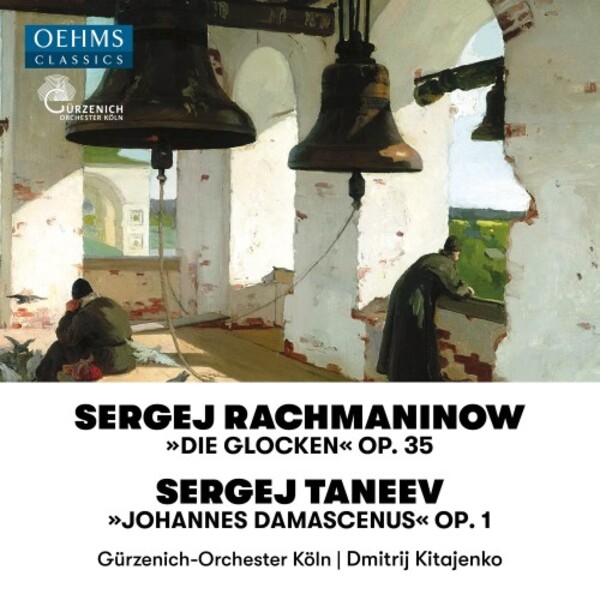
Rachmaninov - The Bells; Taneyev - John of Damascus
£11.88
In stock - available for despatch within 1 working day
Despatch Information
This despatch estimate is based on information from both our own stock and the UK supplier's stock.
If ordering multiple items, we will aim to send everything together so the longest despatch estimate will apply to the complete order.
If you would rather receive certain items more quickly, please place them on a separate order.
If any unexpected delays occur, we will keep you informed of progress via email and not allow other items on the order to be held up.
If you would prefer to receive everything together regardless of any delay, please let us know via email.
Pre-orders will be despatched as close as possible to the release date.
Label: Oehms
Cat No: OC470
Format: CD
Number of Discs: 1
Genre: Vocal/Choral
Release Date: 17th July 2020
Contents
Artists
Anna Samuil (soprano)Dmytro Popov (tenor)
Vladislav Sulimsky (baritone)
Czech Philharmonic Coir Brno
Gurzenich-Orchester Koln
Conductor
Dmitri KitajenkoWorks
The Bells, op.35Cantata: Ioann Damaskin (John of Damascus), op.1
Artists
Anna Samuil (soprano)Dmytro Popov (tenor)
Vladislav Sulimsky (baritone)
Czech Philharmonic Coir Brno
Gurzenich-Orchester Koln
Conductor
Dmitri KitajenkoAbout
Error on this page? Let us know here
Need more information on this product? Click here